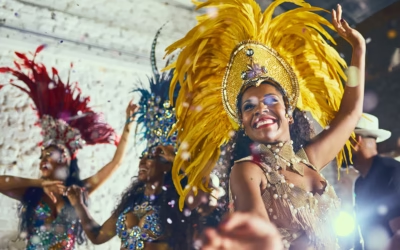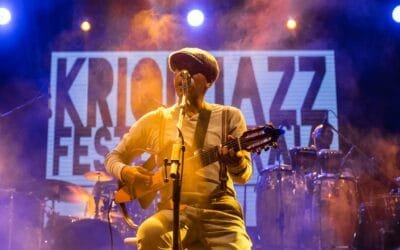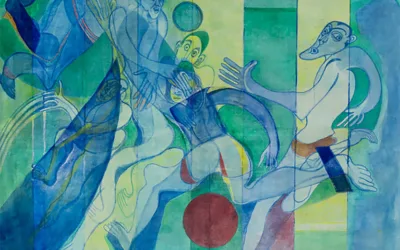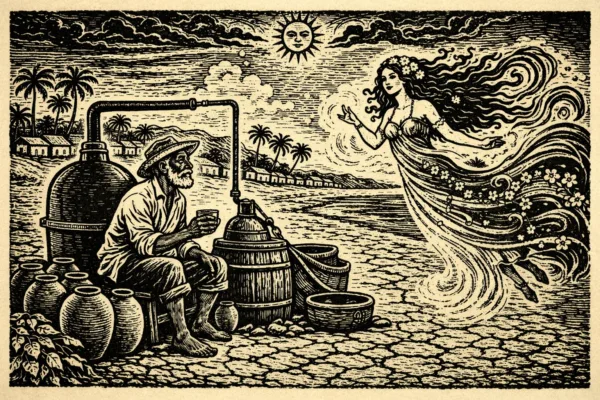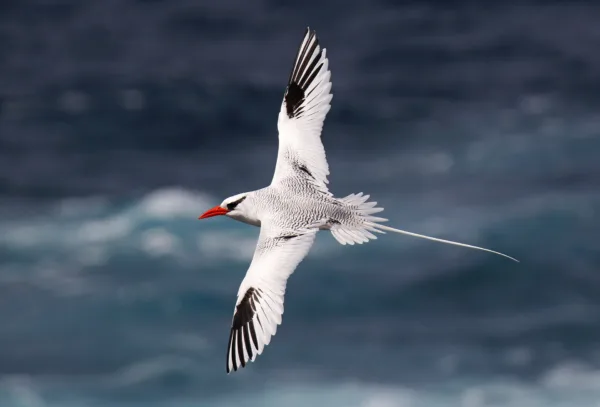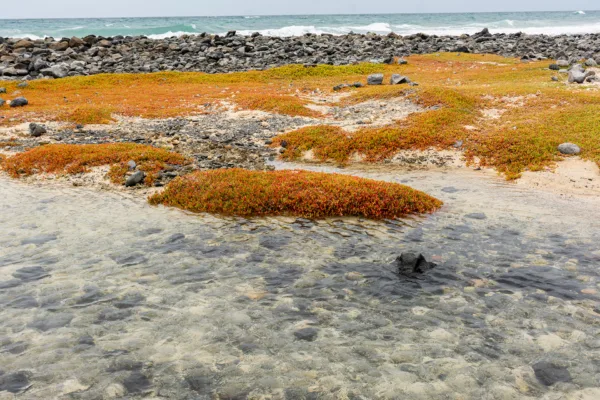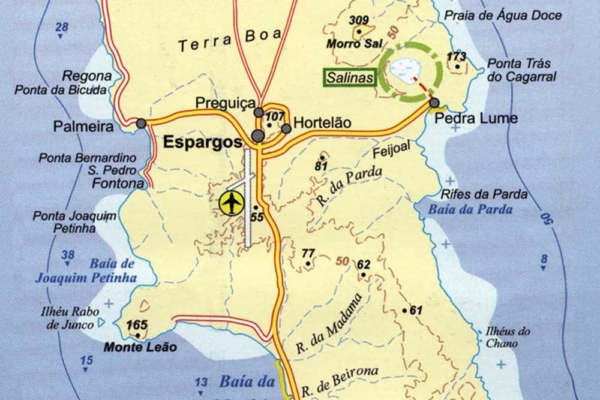The Most Famous Cape Verdean People by Field
Cape Verde (Cabo Verde) and its global diaspora have produced numerous influential figures across various fields. From musical legends who brought the sounds of the islands to the world stage, to writers, leaders, athletes, scientists, and activists, Cape Verdeans (including those of Cape Verdean descent abroad) have made significant contributions historically and in contemporary times. Below, we organise notable Cape Verdean figures by field, with brief notes on their contributions and significance.
Music
Cape Verdean Music and Musicians: Cape Verde’s music is renowned worldwide for its diverse genres, including morna and coladeira. For a relatively small island nation, it has a stunningly rich musical heritage and a vast diaspora music scene.
Perhaps the most famous Cape Verdean musician was Cesária Évora (1941–2011), affectionately known as the “Barefoot Diva” and Rainha da Morna (Queen of Morna). Évora’s voice brought Cape Verdean morna to the world stage, earning a Grammy Award in 2004 and influencing the most famous musicians globally (e.g. Madonna). Her international success paved the way for a new generation of Cape Verdean artists, such as Lura, Mayra Andrade, Sara Tavares, and others, who credit Évora for opening doors for Cape Verdean music internationally.
Other notable figures in Cape Verdean music include Eugénio Tavares (1867–1930) – a poet-composer celebrated as the “Father of Morna”, who wrote many beloved mornas (songs of longing and nostalgia) – and Luis Morais (1935–2002), a pioneering instrumentalist whose compositions became part of the national soundtrack.
Ildo Lobo (1953–2004), Orlando Pantera (1967–2001), and Nácia Gomes (1910–1977) are also revered for penning lyrics that have become national symbols of Cape Verdean identity, touching on themes of the independence struggle, resilience amid hardship, and sodade (a form of longing).
In the diaspora, Cape Verdean-American and Cape Verdean-European artists bridged cultures: for example, Horace Silver (1928–2014), an American jazz pianist born to a Cape Verdean father, became a legend of hard bop jazz, composing standards like “Song for My Father” (an homage to his Cape Verdean roots) and “Cape Verdean Blues”. Jazz saxophonist Paul Gonsalves (1920–1974), of Cape Verdean descent from New England, famously played a 27-chorus tenor solo that revitalised Duke Ellington’s career at Newport 1956.
The R&B/disco group Tavares, consisting of five Cape Verdean-American brothers, scored No.1 hits in the 1970s (e.g. “Heaven Must Be Missing an Angel”) and brought Cape Verdean talent into mainstream American music. Even in pop and hip-hop, Cape Verdean heritage is evident: the late Lisa “Left Eye” Lopes of TLC and singer Blu Cantrell are of Cape Verdean descent, illustrating the broad impact of the Cape Verdean diaspora on the music industry.
Literature
Cape Verdean literature, both at home and in the diaspora, has been marked by pioneering poets, novelists, and storytellers who gave voice to the creole culture and the uniqueness of its national identity. Writers from pre-independence times played a crucial role in shaping Cape Verdean literary tradition, one that diverged from Portuguese colonial narratives.
In the 1930s, a group of intellectuals launched the journal Claridade (“Clarity”), which became the cradle of modern Cape Verdean literature and cultural nationalism. Baltasar Lopes da Silva (1907–1989) – author of the novel Chiquinho (1947) – was “instrumental in the shaping of modern Cape Verdean literature,” blending realism with Cape Verdean folk culture. He, along with poets Jorge Barbosa (1902–1971) and Manuel Lopes (1907–2005), founded Claridade in 1936, using literature to oppose colonialism and affirm Cape Verdean cultural identity. Jorge Barbosa’s poetry is considered “one of the pillars of modern Cape Verdean poetry” and celebrated for capturing the morabeza and melancholic beauty of island life. Barbosa’s work, like Arquipélago (1935), influenced generations and even appears on Cape Verdean currency and monuments today as emblems of national culture.
In the post-independence era, Cape Verdean literature continued to flourish with voices that garnered international acclaim. Arménio Vieira (born 1941), a poet and journalist, became the first Cape Verdean to win the Prémio Camões (Camões Prize) – the highest lusophone literature award – in 2009. Vieira’s modernist poetry and commentary on Cape Verdean identity earned him recognition as “one of the best African writers for the originality and complexity of his works”.
Another giant is Germano Almeida (born 1945), a novelist known for his ironic and witty depictions of Cape Verdean society. Almeida’s novel The Last Will and Testament of Senhor da Silva Araújo gained international readership, and in 2018, he became the second Cape Verdean to be awarded the Camões Prize.
Notably, Orlanda Amarílis (1924–2014) broke new ground as a woman in Cape Verdean letters: she was “the first Cape Verdean woman writer to publish a book-length work of fiction” (her story collection in 1974). Her stories often explore themes of diaspora and gender, and she published in Portugal, thus bridging Cape Verdean literature with the wider Lusophone world.
The Cape Verdean diaspora has also produced writers and scholars who enrich the literature. In New England, for example, Eileen Barbosa and David Barboza (an American journalist of CV descent) have contributed to contemporary literature and media.
Cape Verdean Politics and Independence
Cape Verde’s political history is closely tied to the broader anti-colonial movement in Lusophone Africa.
The most iconic figure is Amílcar Cabral (1924–1973) – though born in Guinea-Bissau to Cape Verdean parents, he is revered in Cape Verde as a founding father of the nation. Cabral was an agricultural engineer turned revolutionary who co-founded the Partido Africano para a Independência da Guiné e Cabo Verde (PAIGC) in 1956. He led the guerrilla struggle against Portuguese rule, and is credited as the strategist who “helped lead Guinea-Bissau to independence” and laid the groundwork for Cape Verde’s freedom.
Beyond the battlefield, Cabral was also a prominent intellectual – “a leading African thinker of the 20th century” – who wrote influential analyses on culture and anti-colonialism. Although he was assassinated in early 1973, before seeing independence, his vision of unity and his phrase “Return to the Source”, advocating a reconnection with indigenous culture, remain inspirational.
Cape Verde achieved independence in 1975, and Cabral is memorialised nationwide (with his bust on public squares, the main international airport named after him, etc.) as the hero who lit the path to nationhood.
Post-independence, Aristides Pereira (1923–2011) served as Cape Verde’s first President (1975–1991). Pereira was a close colleague of Cabral and a co-founder of the PAIGC. He had fought Portuguese colonial rule and then, upon independence, guided the new nation through its first 16 years. Under his one-party socialist government, Cape Verde maintained stability, but it faced significant economic challenges. Pereira voluntarily stepped down after losing the first multi-party elections in 1991, marking a peaceful transition to democracy — a rare occurrence in African politics of the era.
Another key figure, Pedro Pires (born 1934), served as the country’s first Prime Minister (1975–1991) and later as President (2001–2011). Pires had been a PAIGC military commander during the liberation war and negotiated Cape Verde’s independence accords with Portugal in 1974. As Prime Minister, he helped shape the young nation’s institutions, and as President, he oversaw the consolidation of democracy and economic development.
President Pires was awarded the Mo Ibrahim Prize for African Leadership in 2011, for his role in transforming Cabo Verde into a model of stable democracy and good governance. His legacy is nicely visible in Cabo Verde’s consistent, high rankings in African governance indices.
José Maria Neves (born 1960) is a former Prime Minister and the current President, elected in 2021. He has continued Cape Verde’s tradition of democratic governance.
Carlos Veiga (born 1949) served as Prime Minister in the 1990s and was an architect of the country’s market reforms.
In the broader context, it’s worth mentioning Luís Cabral (1931–2009), Amílcar’s half-brother, who became the first President of Guinea-Bissau. Although not a Cape Verdean leader per se, his Cape Verdean parentage and PAIGC role symbolised the close historical bond between the two nations.
Cape Verdean diaspora communities have also seen individuals rise to political leadership abroad. For example, Pedro Pires’s diplomatic engagement led to strong ties with Cape Verdean communities in New England, where Cape Verdean-Americans, such as Ambassador José Luís de Brito and local legislators (e.g., Lis Miranda in Massachusetts), are living bridges between the diaspora and the homeland. While not globally famous, these diaspora leaders are notable within their communities for public service.
Overall, Cape Verde’s political figures – both national founders and later statesmen – are celebrated for achieving independence through unity and for cultivating one of Africa’s most stable democracies.
Sports
Cape Verdeans and their descendants have made a mark in various sports around the world, often punching above the weight of the islands’ small population.
Football
In football (soccer), the most popular sport, Cape Verdean talent has reached the highest international levels, primarily through the diaspora. For instance, Henrik Larsson (born 1971), a Swedish football legend, is the son of a Cape Verdean father and Swedish mother. Larsson became one of Europe’s top strikers in the 1990s–2000s (star of Celtic FC and FC Barcelona) and openly acknowledges his mixed heritage, saying “I have 106 caps for Sweden… but I never felt 100% Swede. I have to respect my father’s [Cape Verde] heritage”.
Luís “Nani” Almeida (born 1986), known simply as Nani, is another example – born in Praia, Cape Verde, he moved to Portugal as a child and rose to fame as a winger for Manchester United and Portugal’s national team (winning UEFA Euro 2016). His journey from a Cape Verdean childhood to Champions League glory at Manchester United is often cited as a tale of diaspora success.
France’s World Cup-winning team also had some Cape Verdean roots through Patrice Evra (born 1981). This longtime French international and former Manchester United captain was born in Senegal to a Cape Verdean mother. Evra’s illustrious career (five English Premier League titles and a UEFA Champions League title) highlights how Cape Verdean lineage is present at the pinnacle of world football.
Additionally, Gelson Fernandes (born 1986) represented Switzerland in multiple FIFA World Cups. Born in Praia, he moved to Europe as a child and famously scored the winning goal for Switzerland against Spain in the 2010 World Cup.
Many other footballers of Cape Verdean descent have starred for European national teams or clubs – e.g., Gelson Martins (Portugal), Rolando (Portugal), Lerin Duarte (Netherlands), and Henrique Hilário (Portugal) – reflecting the widespread Cape Verdean diaspora in Europe’s former colonial and migration hubs.
Basketball
The Cape Verdean impact is also evident beyond football. In basketball, Cape Verde produced Walter “Edy” Tavares (born 1992), a 7’3″ centre who reached the NBA and became a EuroLeague champion, and diaspora players like Dana Barros (born 1967) and Ryan Gomes (born 1982) – both American players of Cape Verdean descent who had notable NBA careers (Barros was an NBA All-Star in 1995).
In boxing, the late Marvellous Marvin Hagler (1954–2021) was one of the greatest middleweight champions in boxing history. He was born in the USA to a family of Cape Verdean ancestry (New England’s Cape Verdean community). Hagler reigned as undisputed world champion for seven years in the 1980s and is often claimed with pride by Cape Verdean-Americans.
Likewise, Tony Gonzalez (born 1976) – a Hall of Fame American football (NFL) tight end – has Cape Verdean roots. Gonzalez’s paternal grandfather was a Cape Verdean immigrant (surname Gonçalves later anglicised), and Tony grew up embracing his multi-ethnic heritage. He went on to become arguably the greatest tight end in NFL history, with 14 Pro Bowl selections.
In athletics, sprinter Lígia Gomes and long jumper Nelson Cruz represented Portugal internationally, but hail from Cape Verdean families, demonstrating that Cape Verdean athletes are also present in Olympic sports.
Science and Academia
Although a small nation, Cape Verde has made notable contributions to science, technology, and academia.
Roberto Duarte Silva (1837–1889) stands out as a pioneering scientist from Cape Verde. Born on Santo Antão, he became an esteemed chemist in 19th-century Paris, specialising in organic chemistry. Despite humble beginnings (he was apprenticed in a local apothecary at the age of 14), he pursued studies in Lisbon and then Paris, where he published essential works and even taught at prestigious institutions, including the École Centrale.
Duarte Silva’s research earned him the Jecker Prize from the French Academy of Sciences, and the French government awarded him the Légion d’Honneur for his contributions to chemistry. He later became President of the Paris Chemical Society. It’s a point of pride in Cape Verde that Duarte Silva, a man born in a remote colony, rose to become a distinguished scientist in Europe – his portrait has appeared on Cape Verdean stamps and currency, and he is often cited as one of the first “African” chemists to gain international renown.
In contemporary times, Dr Maria do Carmo Andrade, also known as Maria Isabel Andrade (born 1958), has gained recognition in the field of agricultural science. A Cape Verdean agronomist, she became a leading researcher on bio-fortified crops.
Working in Mozambique with the International Potato Centre, Dr. Andrade co-developed vitamin-A-rich orange-fleshed sweet potatoes to combat malnutrition. For this work, she was awarded the 2016 World Food Prize, the “Nobel Prize of Agriculture”, as one of the few African women to receive that prestigious prize. It highlights Cape Verde’s contribution to food security science. Maria Andrade has also been honoured with other awards, such as the M.S. Swaminathan Award for her contributions to environmental and food security.
Cape Verdean academics in the diaspora have also achieved notable success. Donaldo Macedo (born 1950), for example, is a prominent Cape Verdean-American linguist and educator, serving as a professor of English and a leading scholar in critical pedagogy (he co-authored works with Brazilian educator Paulo Freire).
Another notable figure was Peter J. Gomes (1942–2011), a Harvard theologian and preacher of Cape Verdean ancestry. While his field was divinity (see the Religion section), his scholarly contributions at Harvard made him one of the most influential African American academics of his time.
In the natural sciences, Dr Henrique Teixeira de Sousa (1919–2006) was both a medical doctor and a novelist. However, he is best known for his literary work; he also made significant contributions to public health in Cape Verde and wrote ethnographic essays.
Additionally, Cape Verdean scientists have been involved in space and climate research: e.g., Selçuk Candansayar (Cape Verdean-Turkish astrophysicist) worked on space telescope projects, and Cape Verde hosts the Ocean Science Centre in Mindelo in partnership with German researchers – an effort spearheaded in part by Cape Verdean marine scientists working to place the islands at the forefront of Atlantic climate and ocean studies.
Religion and Spiritual Life
Religion has played an important role both in Cape Verde (a predominantly Catholic country with indigenous religious customs interwoven) and among the diaspora, where Cape Verdean immigrants often established churches and faith communities.
One of the most prominent religious figures of Cape Verdean origin is Bishop Dom Arlindo Gomes Furtado (born 1949) – the Bishop of Santiago de Cabo Verde, who in 2015 was elevated by Pope Francis as the first Cardinal from Cape Verde. Cardinal Furtado’s appointment was a historic moment for the country, reflecting the long Catholic heritage dating back to Portuguese colonial times. As Cardinal, he has been an advocate for social justice and youth empowerment within the Church. His elevation to the College of Cardinals was widely celebrated in Cape Verde, a symbol of the nation’s presence in the global Catholic community.
In the diaspora, Charles Manuel “Sweet Daddy” Grace (1884–1960) was a remarkable religious leader. Born Marcelino Manuel da Graça on Cape Verde’s Brava island, he emigrated to New Bedford, MA, in 1903. In the 1920s, Daddy Grace founded the United House of Prayer for All People, a Christian denomination that attracted a large following, particularly among African Americans in the eastern U.S..
He was known for his charismatic preaching as well as for establishing social services through his church. By the time of his death, the House of Prayer had dozens of congregations and substantial real estate holdings, making him one of the most financially successful religious figures of his era.
Although sometimes controversial for his flamboyant style, Daddy Grace is remembered as a pioneer of black independent churches – and notably as a Cape Verdean-American who became a significant figure in American religious history.
Another influential figure of Cape Verdean descent in religious life was Rev. Peter J. Gomes (1942–2011). Born in Boston to a Cape Verdean father and an African-American mother, Gomes rose to prominence as the longtime minister of Harvard University’s Memorial Church and a professor of Christian Morals. An erudite Baptist preacher and theologian, Rev. Gomes became one of America’s most prominent clergymen, delivering prayers at Presidential inaugurations. He authored bestselling books on faith (such as The Good Book).
Notably, he broke barriers by being openly gay and yet widely respected in conservative religious circles, illustrating the diversity of the Cape Verdean diaspora’s contributions to religious thought. His blend of identities, as he quipped: “An African-American from Plymouth… A Baptist at Memorial Church. A Republican in Cambridge. Out of the closet and out of the box,” showed the rich tapestry of heritage and perspective he embodied.
Additionally, Cape Verde’s indigenous religious leaders include Cristiano Rodrigues (a long-serving Protestant pastor who translated the Bible into Kriolu) and Imam Djibril Sissé (leader of the small Muslim community, reflecting Cape Verde’s pluralism).
On the Catholic front, Cape Verde had local clergy even in colonial times – for example, Father José Bernardo in the 19th century. Still, it was in the late 20th century that the hierarchy became entirely local, culminating in Cardinal Furtado. Cape Verdean nuns, such as Sister Lucília Teixeira, have also been recognised for their community service.
In summary, whether through high office in the Catholic Church, founding new denominations abroad, or leading chapels at Ivy League institutions, Cape Verdean figures have made unique contributions to religious life.
Activism and Social Change
Cape Verdean figures have also been influential as activists and agents of social change, both on the islands and in the diaspora. Many politicians also served as activists, such as Amílcar Cabral, known for his anti-colonial activism, and Dulce Almada Duarte, known for cultural activism, as noted above. However, there are others whose primary legacy lies in civil society, labour movements, or community activism.
One such figure is Luís dos Reis Tavares (1926–1998), better known as Luíz Cabral in activist circles, a Cape Verdean poet and radio journalist who used his platform to speak out against colonial injustices. Although overshadowed by larger names, he was a significant voice within the PAIGC’s propaganda efforts, broadcasting empowerment messages to farmers and dockworkers during the independence struggle.
In the diaspora, Eugenio “Gene” Monteiro (1945–2020) was a Cape Verdean-American community activist in Boston who fought for housing and employment rights for Cape Verdean immigrants in the 1970s and 1980s. He co-founded the Cabo Verdean Navigators society and organised youth mentorship programs to address gang violence. Monteiro’s grassroots leadership earned him citations from the Massachusetts state government for community service.
Another notable activist is Norberto Tavares (1956–2010), a musician and social activist. As mentioned in the music section, Tavares wrote songs with dissenting lyrics against Portuguese rule and later against governmental corruption. After independence, he emigrated to the US. Still, he continued his activism through cultural work, using funaná music as a vehicle to raise awareness about issues such as rural poverty and government accountability. Ethnomusicologists consider him “a revolutionary figure in Cape Verdean music” whose art was inseparable from his social message.
Women’s activism has also been significant: Ondina Ferreira (1932–2011) was a feminist activist who, following independence, advocated for women’s rights in Cape Verde, helping to establish the Organisation of Cape Verdean Women in 1981. She campaigned for legal reforms in family law and played a key role in increasing girls’ access to education.
In the realm of labour activism, Onésimo Silveira (1935–2022) – though later a politician and diplomat – began as a Marxist thinker and poet advocating workers’ rights and anti-racism in the 1960s. He went into exile due to his outspoken views against the Portuguese, rallying international support for Cape Verdean and African unity.
Cape Verdean activism encompasses a broad spectrum, ranging from cultural and language preservation to social justice and building the diaspora community. Often, these activists operated within or alongside political movements, but they deserve distinction for their specific focus on social change.
Bibliography & Further Reading
- Cape Verdean music and musicians, Terza S. Lima-Neves, Oxford University Press;
- Diaspora Encounters: Spotlight on Cape Verdean-American Musicians, Marlon Bishop, Afropop Worldwide;
- Horace Silver: Celebrating The Jazz Messenger’s Golden Legacy, Charles Waring, Verve Vault, 2025;
- Exploring a Racial Riddle in Cape Verde, Erin Texeira, Los Angeles Times, 2000;
- Baltasar Lopes – Cape Verdean, Poet, Novelist and Amílcar Lopes Cabral, Britannica;
- Jorge Barbosa: An Outstanding Poet of Cape Verdean Literature, Laurent Gachnang, Cabo Verde Plaza;
- Armenio Vieira, Cabo Verde, One Experience, OneLegal;
- Germano de Almeida, African Studies Centre Leiden;
- Gaze in Flux 10.15291/sic/1.15 (Sunset), SIC Journal of Literature, Culture and Literary Translation;
- Dulce Almada Duarte, Cabo Verde Info;
- Aristides Pereira, The Independent (UK), 2011;
- Pedro Pires, World Economic Forum;
- President Pedro De Verona Rodrigues Pires, 2011 Laureate, Mo Ibrahim Foundation;
- Pedro Pires Institute for Cape Verdean Studies, Brian Benson, Bridgewater State University;
- Bishop C. M. Grace – Biography, The United House of Prayer For All People of the Church on the Rock of the Apostolic Faith;
- Henrik Larsson: ‘I have 106 caps for Sweden but I see myself as foreign’, Michael Butler, The Guardian, 2024;
- Nani – Luis Carlos Almeida da Cunha; FBREF;
- Cardinal Arlindo Gomes Furtado, Cardinalium Colegii Recensio;
- Patrice Evra has come a long way from Marsala to Manchester via Monaco, Louise Taylor, The Guardian, 2012;
- Tony Gonzalez: Future Hall of Famer and so much more, The Atlanta Journal-Constitution;
- The Chemist: Roberto Duarte Silva, G.S. Monteiro, Cape Verde History Unearthed, 2014;
- How The Humble Orange Sweet Potato Won Researchers The World Food Prize, Dan Charles, Texas Public Radio, 2016;
- 2016 World Food Prize co-winner receives M.S. Swaminathan Award for Environmental Protection, India, International Potato Centre;
- Peter J. Gomes. Memorial Minute – Faculty of Arts and Sciences, Diana L. Eck Harry R. Lewis Henry Rosovsky Preston Williams Henry Louis Gates, Jr., Chair, Harvard Gazette, 2015;
- Deep-Sea Biology of the Cape Verde Islands, GEOMAR;
- List of Cape Verdeans, Wikipedia;
